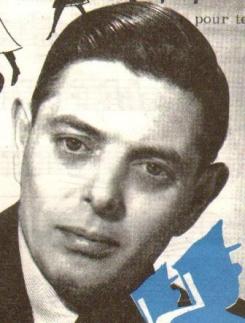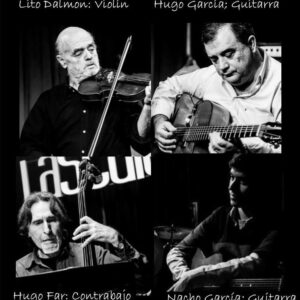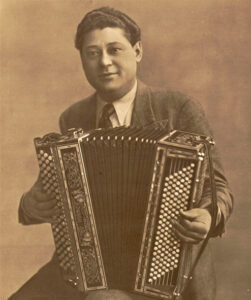Victor Marceau, an extraordinary accordionist, left an indelible mark on the world of music through his enchanting musette tunes. While his name may not be as widely recognized as some of his contemporaries, his collaborations, particularly with the legendary Django Reinhardt, showcased his immense talent and innovation.
In 1928, Marceau embarked on a musical journey that would forever change the landscape of musette music. It was during this time that he joined forces with Django Reinhardt, a rising star in the jazz scene. Together, they embarked on a series of recordings that would become emblematic of their creative partnership.
One notable recording from this period was a collection of musette tunes, in which Marceau’s accordion skills were on full display. These recordings included a cleverly disguised rendition of the popular song “The Sheik of Araby,” ingeniously retitled as “Au Pays de l’Hindoustan” to conceal its jazzy origins. This collaboration between Marceau and Django showcased their ability to infuse traditional musette with a touch of jazz, creating a unique and captivating sound.
Marceau’s accordion mastery, coupled with Django’s innovative guitar playing, resulted in a fusion of musical styles that delighted audiences. The melodies soared, the rhythms pulsated, and listeners were transported to a world where musette and jazz seamlessly coexisted.
While Marceau’s contributions to the music industry may have been overshadowed by Django Reinhardt’s subsequent success, his influence on the evolution of musette cannot be underestimated. His willingness to experiment and push boundaries, as evidenced by his collaboration with Django, paved the way for new possibilities in the genre.
Marceau’s recordings with Django Reinhardt in 1928 serve as a testament to his skill as an accordionist and his commitment to exploring the intersections of musette and jazz. The melodies he crafted and the arrangements he brought to life showcased his musical ingenuity and established him as a maestro in his own right.
Although Marceau’s career may not have attained the same level of recognition as some of his contemporaries, his contributions to the musette genre remain significant. His ability to blend traditional musette with jazz influences opened new doors for future generations of musicians, leaving an enduring legacy.
Today, Marceau’s recordings with Django Reinhardt stand as a testament to his talent and artistic vision. They serve as a reminder of his role in pushing the boundaries of musette music and his ability to create a vibrant and dynamic musical experience. Marceau, the maestro of musette, forever holds a special place in the hearts of music enthusiasts, his accordion melodies continuing to captivate audiences and inspire accordionists around the world.




